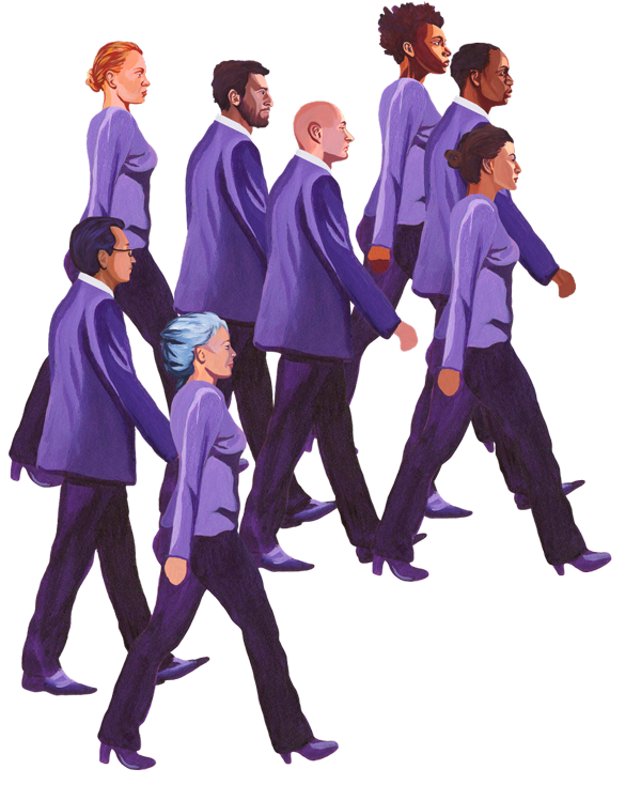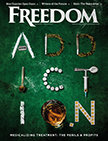
Jennifer Lankheim: I’ve been reading Maps in a Mirror, an anthology of your short fiction. In an essay introducing a section of that book, you talk about how stories shape and bind communities. The stories we tell about ourselves. The stories other people tell about us …
Orson Scott Card: The primary one is gossip. Gossip is the single biggest source of storytelling in everybody’s life.
That’s where I was headed. You wrote that essay circa 1990, at the dawn of the Internet, which you had the prescience to peg as something that would become important politically, and in shaping our shared, public stories. What’s your view on how that’s playing out?
Right now we have a monolithic mainstream media. They all go through the same journalism schools where, if you don’t subscribe to the same politics, you don’t graduate. You don’t get the grades. You find yourself driven out of the field. Very few people who are not completely compliant with that viewpoint make it through. So guess who gets hired in the newsrooms? People who already all think alike.
The power of the Internet is that it allows alternate voices. It creates for us something that we threw away over the last 30 years, which is a free press. We don’t get necessarily an accurate press, but we at least get pressure on the mainstream media to cover stories they would rather ignore.
The Internet is a tool, and it can be wielded to different ends.
I can write something aimed at local readers, but have it reach the whole world. A column of mine about China’s responsibility to keep North Korea from behaving in too barbaric a manner crashed the website of the newspaper that published it [The Rhinoceros Times, Greensboro, NC] because so many Koreans and Chinese were accessing it—and mine was not the traditional viewpoint. It certainly wasn’t what the mainstream media were saying. It’s nice to have that.
At the same time, vicious smears spread just as quickly. Somebody decided that because I had a well-reasoned, controversial opinion on a hot-button issue that I was evil and had to be silenced. And the way you do that is you don’t engage my argument, you take little juicy quotes out of it, pretend that they mean something very different from what I actually meant in their context, and then send it out around the world to savage me.
It’s just amazing how quickly those lies about me spread—misrepresenting my viewpoint. But that’s the story that got told, because so many people spread it. You can’t un-spread such a story.
There were calls to boycott [the 2013 film] Ender’s Game to “send a clear and serious message … that whatever [Card is] selling, we’re not buying.” The critics didn’t mention that you sold the movie rights years ago, didn’t write the film’s screenplay, and had no back-end deal. No matter how well the movie did, you weren’t going to see another dime.
Hollywood loves blacklists. We have a world full of people that just love a reason to punish somebody and shut somebody out. It’s the same old witch-hunt. ‘That’s a witch! Burn that witch! We can’t have witches in our midst!’ The irony is, the people doing it now consider themselves great warriors for tolerance.
This ‘let’s punish people’ mindset is what’s wrong with American politics right now. It’s impossible to have a civil conversation because you can’t just disagree. The climate is such that if you don’t believe as I do, I’m going to punish you for your views. I’m not going to change your mind. I’m just going to do anything possible to keep anyone else from listening to you.

It starts in the universities. I mean, we still call them universities, but anyplace that has a speaker somebody wants to invite—and people demonstrate to not allow that person to speak—that’s not a university anymore. That’s a seminary to train true believers.
We have a state religion in America—political correctness—and it’s absolutely in charge of our elite culture right now, with the state universities, and most of the private universities, teaching its dogmas.
So, while the marketplace for ideas is bigger than ever, our tolerance for ideas different from our own is shrinking … ?
There are still a lot of us who would love to have a public conversation. But what’s the point?
The problems and challenges of this society cannot be studied or even discussed in any meaningful way, because researchers and academics and politicians and the media always have to do lip service to the politically correct views. It’s hurting science, it’s hurting our self-understanding, and it’s certainly reshaping our culture into one that people won’t mind if it dies.
How can we swing the pendulum back from political correctness at all costs to a place where institutions—academic and otherwise—support inclusive, reasonable discourse?
All you have to do is open up the universities to professors who actually have divergent views. The trouble is that we drove them out before they got doctorates; they couldn’t get approval for their dissertation project. There are some who tough it out anyway, but they aren’t tenured professors. And so you hear, ‘All the people with credentials agree with us.’ Well, that’s true—because you denied credentials to anybody who disagreed. But the moment you suggest changes toward true academic diversity, which allows for divergent viewpoints, you’re attacked as being the enemy of academic freedom. It’s incredibly hypocritical.
Alternatively, there are a lot of people with a lot of money who have viewpoints that don’t go along with the elitist religion. Newspapers are for sale. Television stations are for sale. So you buy one. And you hire journalists who follow the story wherever it goes. And you fire journalists who write deceptive news stories in order to get a political result.
You’re a person who stands by your beliefs and your views, even if they’re unpopular. That kind of integrity is a rare virtue in this sociopolitical climate, ruled as it is by ‘fair weather’ agendas.
The odd thing is, everybody cares about integrity. They care that when their child says to them, ‘I’m going to this party at this person’s house,’ that that is where they go. Kids care that when the parents say, ‘If you do this, then you can go to the concert,’ and they do it and then the parent then lets them go to the concert. People who lend money care that it will be repaid.
The problem is, people have gotten used to saying, ‘Except for famous people. Except for politicians. Except for the news media and university professors.’ For them, it’s okay to default to, ‘Oh, everybody knows this,’ and not bother to find out what is actually true.
More people need to hold these figures to the same standards of integrity they apply to their own kids and parents.
You’re a public figure, and you’re open about your religion and your faith—something that doesn’t always sit well with people, or jive with what they expect.
Everyone assumes that if you’re an intellectual, if you are a writer, then you must not have faith in a religion. It takes people like me to dispel that notion. I’m definite. I live. I go through life. I try to learn everything I can about everything. I try to follow evidence where it leads, even if it leads to very inconvenient places. And I speak up and say, ‘Excuse me, I do believe in God. I have faith. I am a committed, believing member of my Church.’
Somebody from Salon.com interviewed me once and she quoted something from the doctrine of my Church and said something like, ‘Surely you don’t believe that!’ and got on her pet issue, and where the Mormon Church had an official position against it. I said, ‘Of course I accept that. That’s part of the religion. Why would you think that I don’t?’

It was because all “right” thinking people agreed with her. She could not conceive that any intelligent person would disagree, because she was educated in a system where everybody thinks alike, and works in a profession where everybody thinks alike—and believes that this is normal. It’s not. It’s a fantasy world.
What was amusing is that she wrote her article in such a way that my viewpoint was actually completely expressed. She quoted me accurately, and then talked about her outrage at what a monster I am. Only most of her readers couldn’t find a monster in anything I said, because at the time mine was the majority viewpoint in America. But since [the reporter] never talks to anyone that doesn’t agree with her, she has no way of knowing what anybody else thinks.
This self-inflicted ignorance of the intellectual elite is like having chronic malaria. Every now and then they go into fits of ague and they tremble and shake and they have no idea that they’re sick.
How can this “disease” be cured?
Start with tenured university faculty. They all sound like they believe the same thing, but they don’t. They just can’t say so because they know they’ll be attacked.
I think most academics hate the fascist state that exists in most American universities. They want it to end, but they’re afraid. Somebody brave needs to speak up and put a stop to it.
And more broadly?
Right now, it’s like the height of the McCarthy era, when the mere allegation that you might be a communist was enough to seriously damage your career and your reputation. But it ended. How did it end? McCarthy took on the army, and the army was more loyal to their own people than they were afraid of him. He ran up against a wall that wouldn’t crumble.
I’m not saying we can’t come to a place where we have an actual state of Fascism. They don’t call it that of course; they call it a social justice state in America—and we certainly have people who are trying to move us there. But the social justice warriors are running up against more and more walls that won’t crumble, in churches.
Sure, there are plenty of mainline churches that crumbled immediately because they didn’t want any attacks on them, but you run up against Orthodox Jews—they’re not going to bend. You run up against Mormons—we tried to cooperate, but we’re not bending. You run up against the Southern Baptists, they’re not going to roll over and play dead; they fired a minister who did. You run up against the Scientologists—they’re not going to change their doctrine for the sake of popularity, because they stand for something. They’re not going to bow.
It will be interesting to see who else doesn’t bow.





























